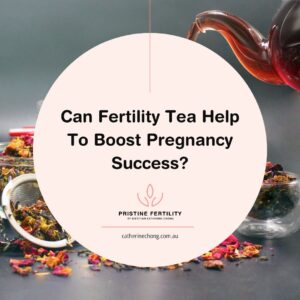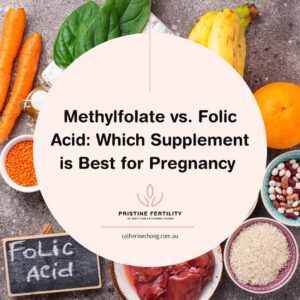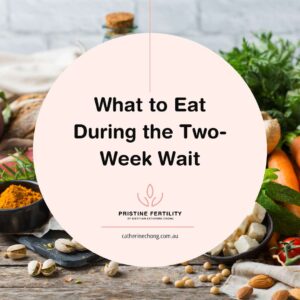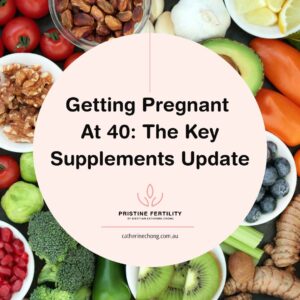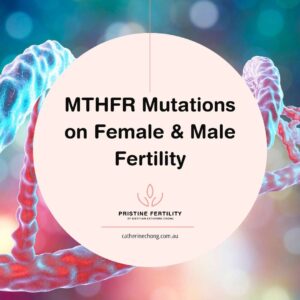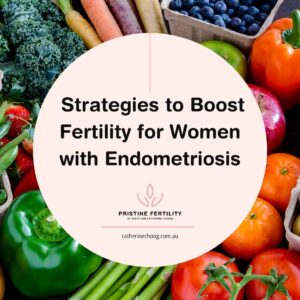Foods to Eat During the Two-Week Wait
Looking for the right foods to eat during the two-week wait can be daunting for couples trying to conceive. While no magic food guarantees pregnancy, choosing the right foods can support your body and potentially increase your chances of conception.
This blog will explore the benefits of the Mediterranean diet, omega-3 fatty acids, and science-proven homemade beetroot, watermelon, and ginger juice. So, if you’re wondering what to eat during the two-week wait, keep reading!
1. How the Mediterranean Diet Can Boost Fertility During the Two-Week Wait
One of the most well-known and researched healthy dietary patterns is the Mediterranean Diet, which can be particularly beneficial during the two-week wait. This diet emphasises consuming fruits and vegetables, whole grains, lean proteins, and healthy fats, which provide essential nutrients for embryo implantation.
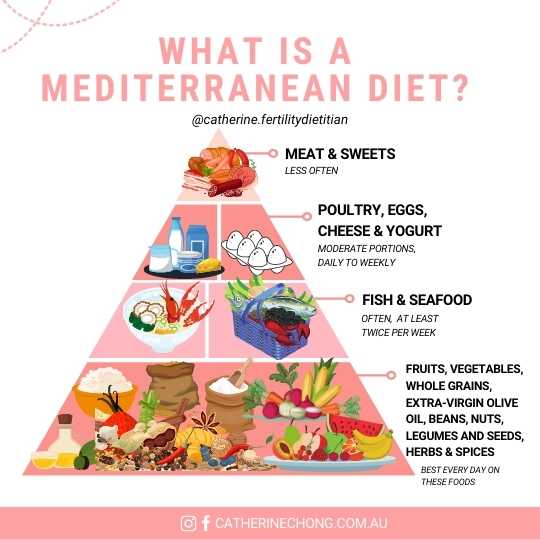
A recent prospective cohort study examined the impact of pretreatment whole grain intake on IVF outcomes in 273 women across 438 IVF cycles. The study found that higher consumption of whole grains before treatment was associated with a greater likelihood of successful implantation and live birth.
Women in the highest quartile of whole grain intake (>52.4 g/day) had a 53% live birth rate, compared to 35% for those in the lowest quartile (<21.4 g/day). This effect was primarily linked to the intake of wholegrain, which is rich in the Mediterranean diet. Additionally, an increase in whole grain consumption was associated with a thicker endometrium on the day of embryo transfer, which may enhance embryo receptivity.
2. Omega-3 Fatty Acids: Boosting Implantation Success
Omega-3 fatty acids are particularly beneficial during the two-week wait because they can help support embryo implantation. Omega-3 fatty acids have been shown to have anti-inflammatory effects, which can help reduce inflammation in the body and create a more favourable environment for the embryo to implant.
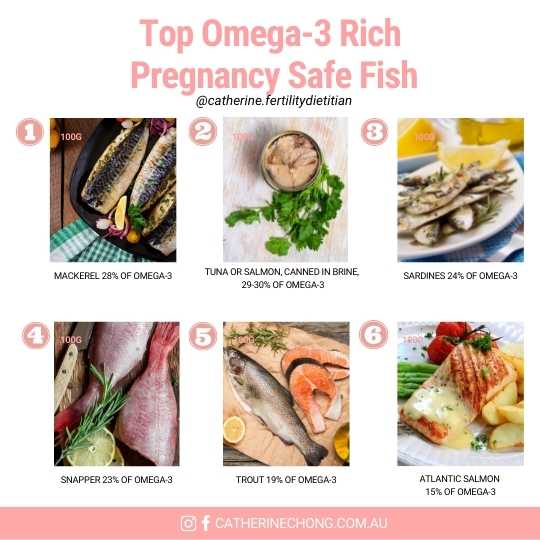
Oily fish such as blue mackerel, Atlantic salmon, and herring are the best sources of omega-3. However, harmful chemicals like mercury can accumulate in fish and cause adverse effects. The Australian Food Standards advise that women trying to conceive and during pregnancy can safely consume 2-3 servings per week of any fish (with one serving equal to 150 grams), except for the following:
- One serving per week of orange roughy (deep-sea perch) or catfish and no other fish that week
- One serving per fortnight of shark (flake) or billfish (swordfish/broadbill or marlin) and no other fish that fortnight.
If you dislike eating fish, you can still obtain the benefits of omega-3 by taking a high-quality fish oil or algae oil supplement. It’s essential to discuss with a fertility dietitian before starting any new supplement to ensure it aligns with your fertility plan.
3. Beetroot, Watermelon, and Ginger Juice: A Promising Strategies To Improve Pregnancy Success
A recent study investigated whether supplementation with beetroot, watermelon, and ginger juice could enhance the clinical outcomes of Intracytoplasmic Sperm Injection (ICSI) cycles. The study involved 436 women undergoing ICSI treatment, with participants randomised into two groups: a control group and a supplementation group.
The women in the supplementation group consumed a daily dose of homemade juice—including beetroot, watermelon, and ginger juice—from the day of embryo transfer until the pregnancy test, while the control group did not follow this protocol. Results showed that the supplementation group had significantly higher implantation rates (25.2% vs. 20.5%) and clinical pregnancy rates (41.0% vs. 22.0%) compared to the control group.
The study concluded that beetroot, watermelon, and ginger juice supplementation may improve clinical outcomes in assisted reproductive technology (ART) without side effects, making it a promising dietary strategy. If you’re interested in learning more about enhancing embryo implantation success. Read our previous blog here.
4. Vitamin E Rich Foods to Boost Your Chances of Pregnancy During the Two-Week Wait
Vitamin E, a potent antioxidant, is a nutrient found in various foods, including extra-virgin olive oil, sunflower seeds, pinenuts, hazelnuts, almonds, and eggs.
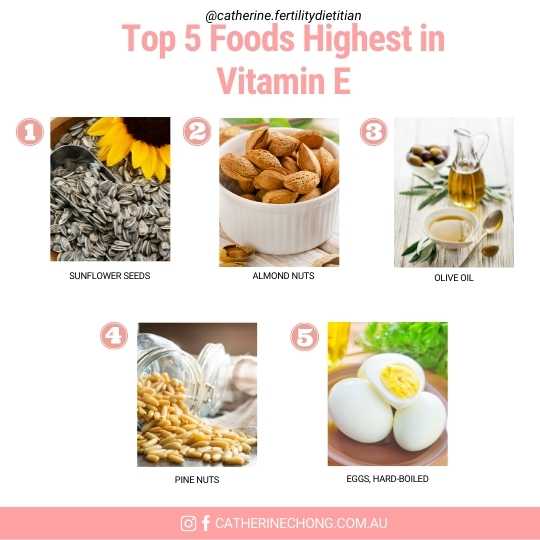
Research has shown that vitamin E may significantly improve endometrial thickness and reduce inflammation in women, increasing the chances of successful implantation.
In a 2012 study, women supplemented with 400 IU/day of vitamin E before ovarian stimulation with clomiphene citrate showed improved endometrial thickness. Another clinical trial found that 12 weeks of supplementation with 400 IU/day of vitamin E enhanced endometrial thickness and inflammatory markers in women who had previously experienced implantation failure.
Before starting any vitamin E supplementation, it is essential to consult with a fertility dietitian and your doctor to ensure it is safe for you and your individual needs.
5. Coping with Emotional Eating During The Two-Week Wait
The two-week wait can be an emotionally charged time, filled with stress, anxiety, and hopefulness as you navigate the uncertainty and hyper-focus on possible early pregnancy symptoms. These emotions can easily trigger emotional eating, where food becomes a way to soothe or distract from the intensity of your feelings. While it’s normal, it’s important to recognise when you’re reaching for food out of emotion rather than physical hunger.
Instead of turning to food for comfort, you might choose healthier ways to care for yourself, such as:
- Opting for a nutritious snack: If you feel hungry, choose foods that nourish your body, like a handful of nuts, fresh fruit, or yoghurt.
- Practising self-care: Sometimes, emotional eating signals that you need something else—like rest, relaxation, or comfort. Consider taking a nap, meditating, or enjoying a warm bath to reduce stress and reset.
- Journaling your feelings: Writing down your thoughts can help you process the emotions you’re experiencing. Journaling creates a safe space to express your fears, hopes, or concerns, offering clarity and emotional relief without turning to food.
- Connecting with loved ones: Reaching out to friends or family can provide much-needed support. Talking with someone who understands what you’re going through can ease feelings of isolation and help you manage your emotions healthily.
If emotional eating is becoming frequent or overwhelming, consider working with a fertility dietitian or a counsellor who can help you navigate these emotional challenges and develop healthier coping strategies.
Bottom Line:
- The Mediterranean diet is ideal during the two-week wait. It offers essential nutrients for embryo implantation through fruits, vegetables, whole grains, lean proteins, and healthy fats.
- Omega-3 fatty acids and vitamin E support a favourable environment by reducing inflammation and enhancing endometrial thickness.
- Supplementing with homemade beetroot, watermelon, and ginger juice may improve endometrial receptivity and boost implantation rates in ICSI cycles.
- Mindfulness, support networks, and guidance from a fertility dietitian can provide emotional support during this time.

